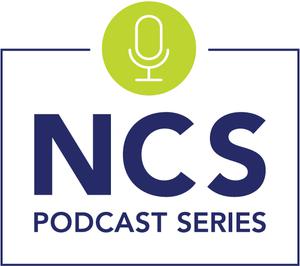
Neurocritical Care Society Podcast
Neurocritical Care Society
Official Podcast of the Neurocritical Care Society
- 46 minutes 56 secondsPERSPECTIVES: APPs and Point-Of-Care Ultrasound in Neurocritical Care With Diane McLaughlin, FNCS
In this episode of Perspectives, Dr. Nicholas Morris talks with Diane McLaughlin, FNCS, about her journey into neurocritical care and the vital role of postgraduate training for APPs. She highlights the importance of ultrasound, sharing how she developed her skills and discusses strategies for staff retention and career growth. She also reflects on advancements in stroke treatment and the benefits of professional society involvement.
13 January 2025, 3:55 pm - 37 minutes 8 secondsHOT TOPICS: The PROPHY-VAP Study
In this episode of Hot Topics, Dr. Nicholas Morris interviews Claire Dahyot-Fizelier, M.D, Ph.D., a professor of anesthesia and intensive care at the University of Poitiers, to explore the groundbreaking PROPHY-VAP trial published in The Lancet Respiratory Medicine. This landmark study investigates the impact of single-dose ceftriaxone prophylaxis on ventilator-associated pneumonia (VAP) in acute brain injury patients. Dr. Dahyot-Fizelier discusses the rationale behind the study, key findings and the broader implications for ICU practices. Tune in to discover how this trial could reshape approaches to infection prevention and improve patient outcomes in neurocritical care.
Show notes:
https://doi.org/10.1016/S2213-2600(23)00471-X
Dahyot-Fizelier C, Lasocki S, Kerforne T, Perrigault PF, Geeraerts T, Asehnoune K, Cinotti R, Launey Y, Cottenceau V, Laffon M, Gaillard T, Boisson M, Aleyrat C, Frasca D, Mimoz O, on behalf of the PROPHY-VAP Study Group and the ATLANREA Study Group. Ceftriaxone to prevent early ventilator-associated pneumonia in patients with acute brain injury: a multicentre, randomised, double-blind, placebo-controlled, assessor-masked superiority trial. The Lancet Respiratory Medicine. 2024 May 1;12(5):375-85.
3 December 2024, 9:56 pm - 38 minutes 28 secondsHOT TOPICS: The ORANGE Study With Dr. Giuseppe Citerio
In this episode of Hot Topics, Dr. Nicholas Morris interviews Dr. Giuseppe Citerio, professor of anesthesia and intensive care at Milano-Bicocca University, about the ORANGE study, which investigated the neurological pupil index (NPI) for prognosticating outcomes in patients with acute brain injury. The study, involving 13 centers in Europe and North America, found that repeat abnormal NPI values, including zero, were predictors of poor outcomes. The study collected data every four hours for seven days and used a sophisticated statistical model to account for longitudinal changes. Despite initial expectations, the study did not find a strong correlation between the NPI and ICP, suggesting NPI should not be used as a surrogate for ICP. Future research may focus on developing a standardized response to low NPI values.
Show Notes:
https://doi.org/10.1016/S1474-4422(23)00271-5
Oddo M, Taccone FS, Petrosino M, Badenes R, Blandino-Ortiz A, Bouzat P, Caricato A, Chesnut RM, Feyling AC, Ben-Hamouda N, Hemphill JC. The Neurological Pupil index for outcome prognostication in people with acute brain injury (ORANGE): a prospective, observational, multicentre cohort study. The Lancet Neurology. 2023 Oct 1;22(10):925-33.
4 November 2024, 8:58 pm - 25 minutes 18 secondsCURRENTS: Unbroken Stride: Cameron’s Story of Hope
On September 2022, Cameron Kuklick fell from a motorized rental scooter while returning to his hotel after celebrating his brother’s wedding in Harrisonburg, Virginia. Cameron experienced a severe traumatic brain injury (TBI) at the age of 30. Cameron and his family hope that by sharing their story and experiences, they too can provide hope and healing for others. In this week’s episode, Cameron joins Dr. Lauren Koffman and Dea Mahanes, DNP, APRN, CCNS, HEC-C, FNCS, who was on Cameron's care team, to discuss his Story of Hope.
You can read Cameron's story in Currents at https://currents.neurocriticalcare.org/Stories-of-Hope/Article/unbroken-stride-camerons-story-of-hope-overcoming-brain-injury-to-cross-the-finish-line.
13 October 2024, 1:03 pm - 50 minutes 46 secondsPERSPECTIVES: Dr Gretchen Brophy
In this week's episode of Perspectives, Dr Nicholas Morris is joined by NCS Past President, Dr Gretchen Brophy, Professor of Pharmacotherapy & Outcomes Sciences and Neurosurgery with Virginia Commonwealth University (VCU) School of Pharmacy, Medical College of Virginia Campus, in Richmond.
17 July 2024, 1:38 am - 34 minutes 55 secondsMASTERCLASS: Critical Care EEG Monitoring
Electroencephalography (EEG) is an important and relatively inexpensive tool that allows intensivists to monitor cerebral activity of critically ill patients in real time. Seizure detection in patients with and without acute brain injury is the primary reason to obtain an EEG in the Intensive Care Unit (ICU); and in response to the increased demand for EEG, advances in quantitative EEG (qEEG) created an approach to review large amounts of data instantly. Today, rapid response EEG is now available to reduce the time to detect electrographic seizures in limited-resource settings. In this week's MasterClass, our hosts Dr Jon Rosenberg and Dr Stephan Mayer are joined by Dr Lawerence Hirsch, Co-Director of the Critical Care EEG Monitoring Program at Yale School of Medicine to discuss the evolution, value, and impact of brain monitoring with EEG in the critically ill.
10 July 2024, 3:52 am - 21 minutes 57 secondsCURRENTS: Consent for Brain Death Determination - the ends justify the means... or it does not.
The purpose of informed consent, as it exists now, is primarily to maintain patient autonomy, but additional benefits include the protection of patients, avoidance of fraud, and promotion of rational decisions, amongst others. It is now considered both an ethical and legal obligation which should, at a minimum, always include: 1) the nature of the procedure, 2) the risks and benefits of the procedure, 3) reasonable alternatives, and 4) risks and benefits of alternatives, with an assessment of comprehension of these elements (1). This week Dr Lauren Koffman is joined by Clotilde Balucani, MD and Julia Durrant, MD two of the authors of the recent Currents article Consent for Brain Death Determination - the ends justify the means... or it does not.
3 July 2024, 3:25 am - 31 minutes 18 secondsHOT TOPICS: The SWITCH Trial
It is unknown whether decompressive craniectomy improves clinical outcome for people with spontaneous severe deep intracerebral haemorrhage. The SWITCH trial aimed to assess whether decompressive craniectomy plus best medical treatment in these patients improves outcome at 6 months compared to best medical treatment alone. The SWITCH Trial has come to an end and the findings published in The Lancet and in this week's HOT TOPICS episode, Dr. Nicholas Morris is joined by two of the lead authors, Prof. Jürgen Beck, MD and Prof. Urs Fischer, MD to discuss the trial.
26 June 2024, 3:28 am - 1 hour 1 minuteHOT TOPICS - ANNEXA-I Trial
Patients with acute intracerebral hemorrhage who are receiving factor Xa inhibitors have a risk of hematoma expansion. The effect of andexanet alfa, an agent that reverses the effects of factor Xa inhibitors, on hematoma volume expansion had not been well studied, until the ANNEXA-I Trial. To discuss this week's Hot Topic, Nicholas Morris, MD is joined by one of the trial's collaborators, Ashkan Shoamanesh, MD as well as clincial pharmacist Andrew Webb, PharmD, BCCCP.
Listeners can also join the NCS Journal Club which will be discussing the ANNEXA-I Trial on "X" / Twitter on Tuesday, July 16th starting at 9am CT.
19 June 2024, 3:38 am - 55 minutes 34 secondsPERSPECTIVES: Dr Monisha Kumar, FNCS
In this week's episode of Perspectives, Dr Nicholas Morris is joined by Dr Monisha Kumar, FNCS, Professor of Neurology at the Hospital of the University of Pennsylvania to discuss the threats to diversity, equity, and inclusion in neurocritical care.
12 June 2024, 3:12 am - 33 minutes 31 secondsCURRENTS: Innovation for Health Disparities Research in Hemorrhagic Stroke
As clinicians working with patients who have sustained an acute brain injury, we are naturally focused on caring for the injury itself. Until recent years, the clinical severity of brain injury was regarded as the main driver of prognosis and outcomes. However, we are beginning to understand how non-clinical factors, including the social determinants of health (SDOH), contribute to differential risk for all brain injuries including hemorrhagic stroke, and continue to impact our patients’ recovery even after injury. In this week's episode Dr Lauren Koffman is joined by Dr Nirupama Yechoor and Dr Rachel Forman to discuss how understanding the complex interplay between clinical and social determinants of health is crucial for clinicians caring for hemorrhagic stroke survivors, not only for recovery and secondary prevention, but also to effectively counsel families on primary prevention. Lauren is also joined by Mike Foster, a member of Yale's Stroke Patient Advisory Board who talks about his experience as a stroke survivor.
You can read the Currents article at https://currents.neurocriticalcare.org/Leading-Insights/Article/innovation-for-health-disparities-research-in-hemorrhagic-stroke.
Stroke survivors or those who care for loved ones who have had a stroke can sign-up for Dr Yechoor's study at https://rally.massgeneralbrigham.org/study/strokewellbeing.
5 June 2024, 3:00 am - More Episodes? Get the App
Your feedback is valuable to us. Should you encounter any bugs, glitches, lack of functionality or other problems, please email us on [email protected] or join Moon.FM Telegram Group where you can talk directly to the dev team who are happy to answer any queries.
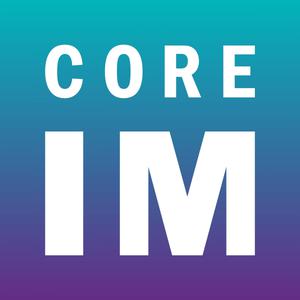 Core IM | Internal Medicine Podcast
Core IM | Internal Medicine Podcast
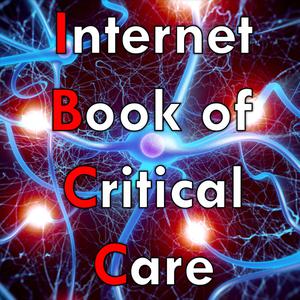 The Internet Book of Critical Care Podcast
The Internet Book of Critical Care Podcast
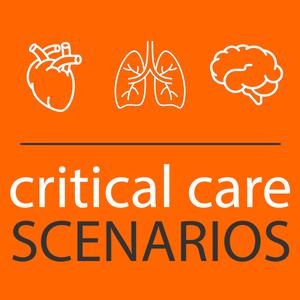 Critical Care Scenarios
Critical Care Scenarios
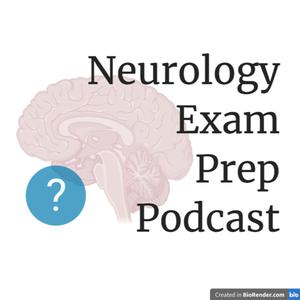 Neurology Exam Prep Podcast
Neurology Exam Prep Podcast
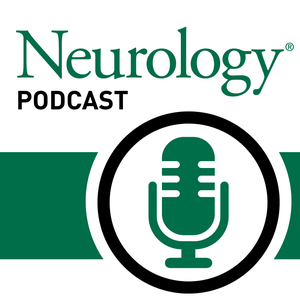 Neurology® Podcast
Neurology® Podcast
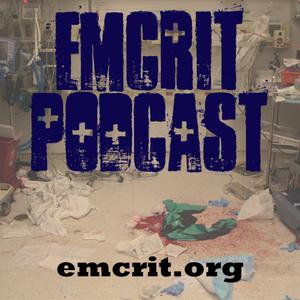 EMCrit FOAM Feed
EMCrit FOAM Feed